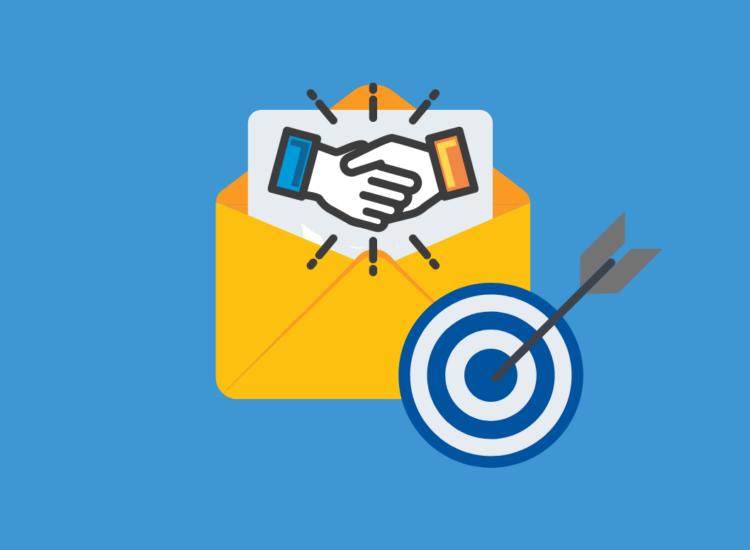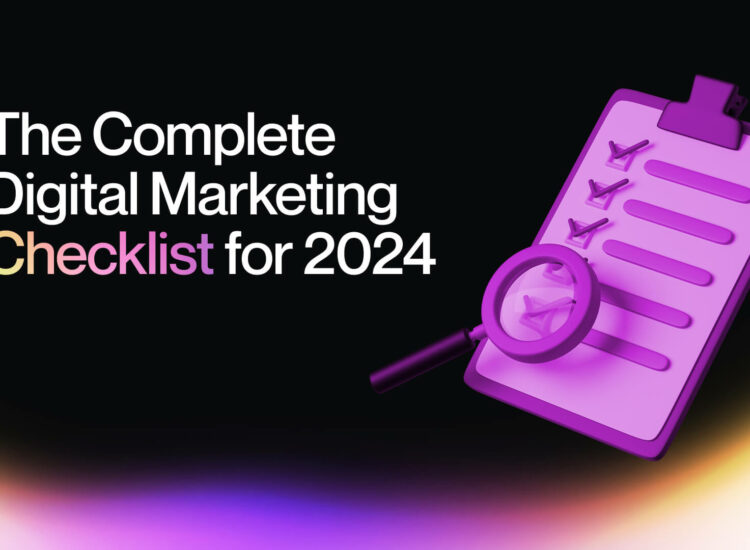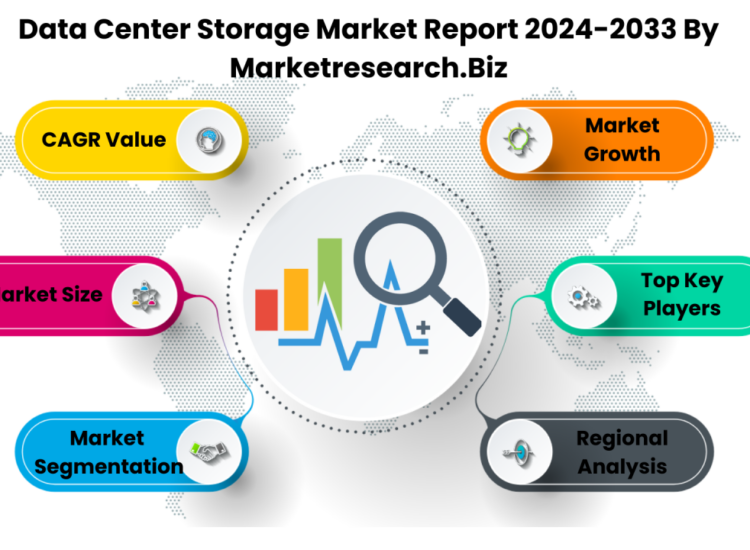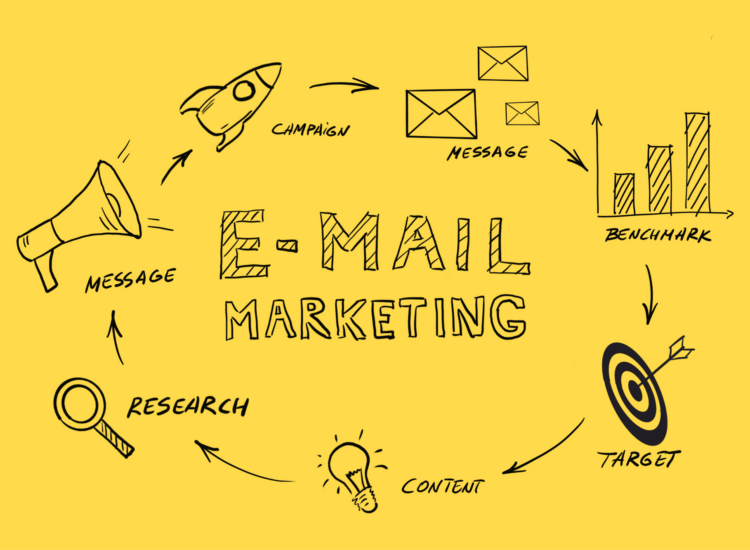AI powered marketing is revolutionizing the way businesses engage with customers and promote their products and services. By leveraging artificial intelligence and machine learning, companies can now gain deeper insights into customer behavior, automate personalized marketing at scale, and optimize campaigns for maximum impact. From chatbots that provide instant customer support to predictive analytics that anticipate future trends, AI is transforming every aspect of modern marketing. As we enter a new era of digital commerce, businesses that harness the power of AI will be well-positioned to build stronger customer relationships, drive growth, and stay ahead of the competition.
Toc
- 1. The Growing Importance of AI in Marketing
- 2. The Benefits of AI Powered Marketing
- 2.1. Enhanced Personalization
- 2.2. Streamlining Marketing Operations
- 2.3. Improved Customer Segmentation
- 2.4. Predictive Customer Behavior Analysis
- 2.5. Increased Efficiency
- 2.6. Overcoming Challenges with AI in Marketing
- 2.7. Real-time Data Analysis and Insights
- 2.8. Better Decision-making
- 2.9. Predictive Analytics for Campaign Optimization
- 2.10. Improved Customer Experience
- 2.11. Ethical Considerations and Future Directions
- 3. Applications of AI in Marketing
- 4. The Challenges and Considerations of AI Powered Marketing
- 5. The Future of AI Powered Marketing
- 6. Conclusion
The Growing Importance of AI in Marketing
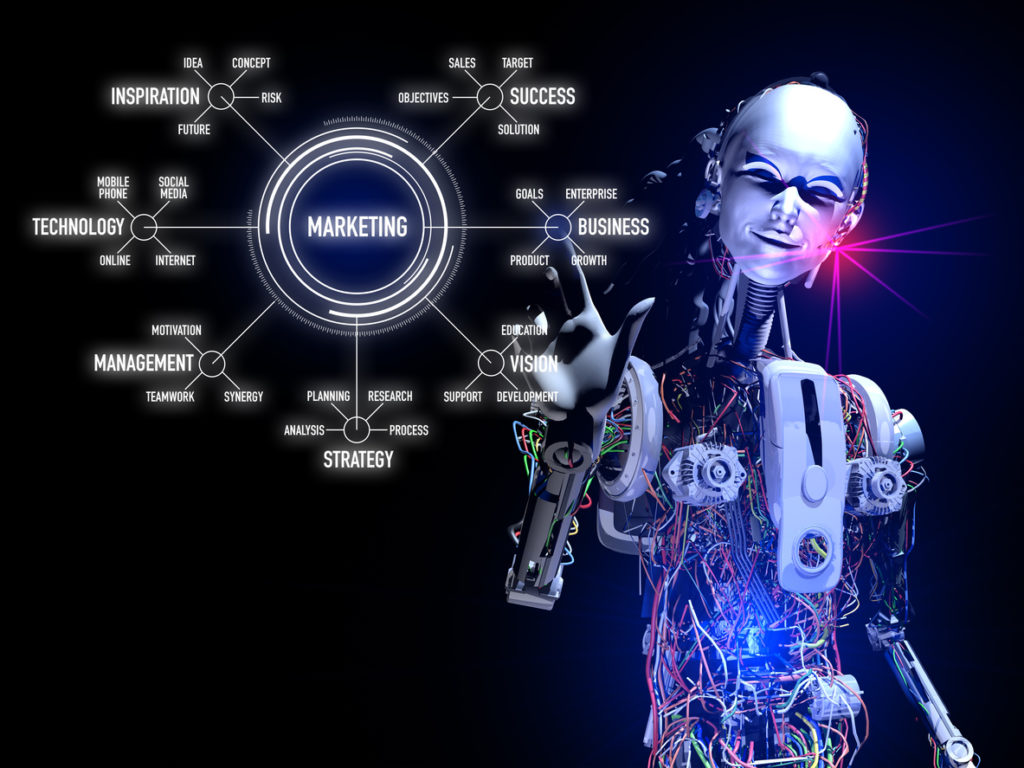
Artificial intelligence is more than just a buzzword. It’s rapidly becoming integral to the way businesses carry out their marketing activities. Digital marketing today is a data-driven domain, and AI’s prowess lies in processing and deriving actionable insights from vast amounts of data more efficiently and accurately than any human could hope to achieve.
Defining AI-Powered Marketing
AI powered marketing is the application of data-driven technology and advanced analytics to codify, understand, and predict customer behavior and preferences. It leverages sophisticated algorithms to automate complex and often repetitive tasks, allowing marketers to focus on strategy and creativity.
Key Components of AI in Marketing
The backbone of AI powered marketing consists of machine learning, natural language processing, computer vision, and predictive analytics. Machine learning helps AI systems become more intelligent over time. Natural language processing enables better understanding of and interaction with human language, vital for chatbots and content analysis. Computer vision aids in the recognition of visual data, which is crucial for image and video analysis. And predictive analytics helps marketers forecast future trends and behaviors more accurately.
The Benefits of AI Powered Marketing
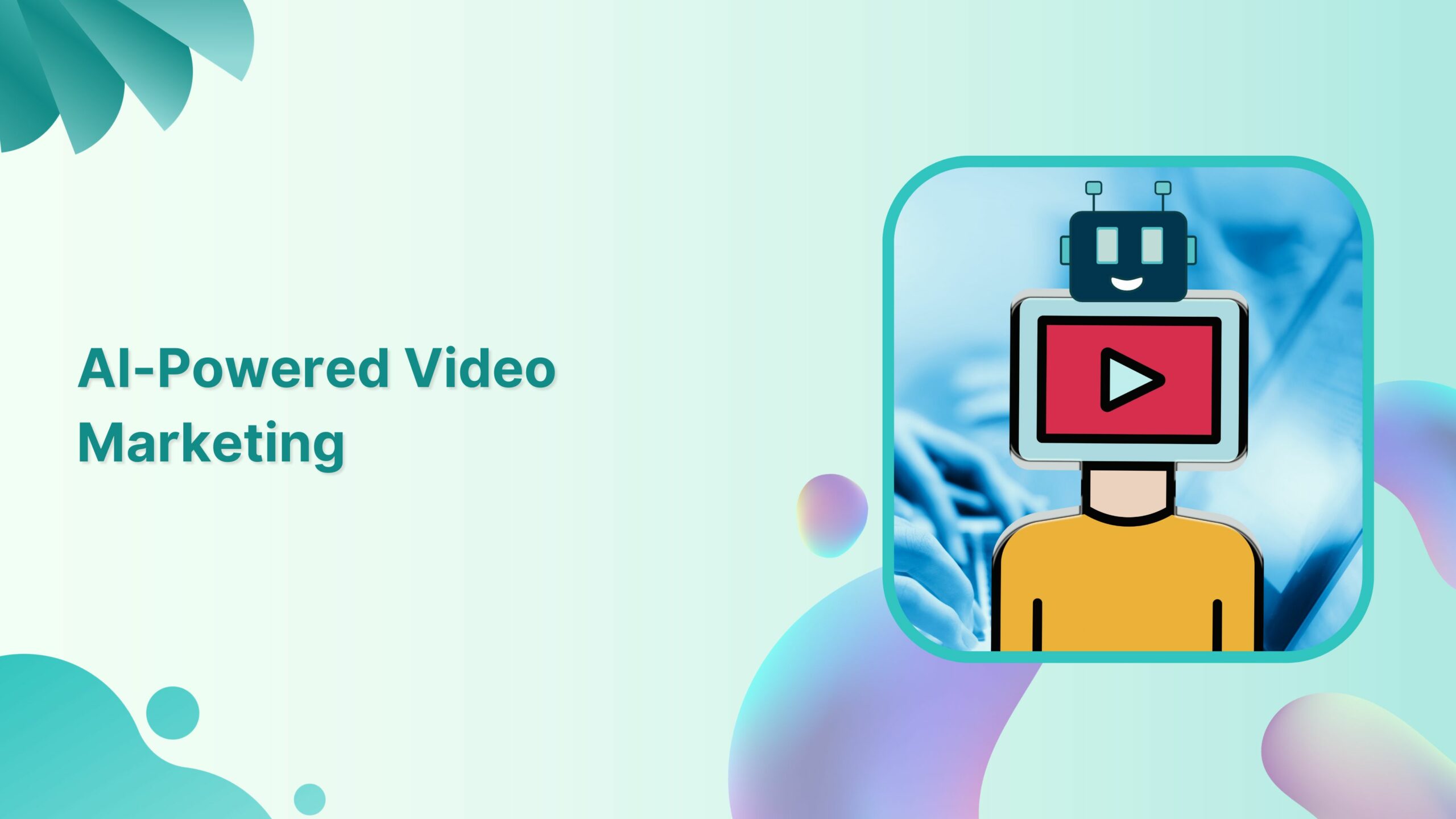
The application of AI in marketing yields a bounty of benefits for businesses looking to connect more effectively with consumers.
One of the most significant advantages is the unprecedented level of personalization it offers. AI can analyze customer data from various sources to create highly individualized marketing messages, which can lead to improved customer engagement rates. This personalization extends across email marketing, content creation, product recommendations, and more, allowing brands to reach their audience in a more meaningful way. Furthermore, AI-driven analytics can provide deeper insights into customer behavior, enabling marketers to optimize their strategies in real-time for better results. This adaptability not only maximizes the return on investment but also enhances the customer experience, making it more likely for customers to remain loyal to the brand.
Enhanced Personalization
AI helps create a more personalized experience for customers. It can analyze user data to predict customer needs, tailor product recommendations, and deliver individualized marketing messages.
Streamlining Marketing Operations
Another pivotal advantage of AI in marketing is its ability to streamline operations and increase efficiency. By automating routine tasks such as data analysis, content generation, and even customer support with chatbots, marketers are freed to focus on more strategic tasks. This efficiency not only reduces the time to market for campaigns but also significantly cuts down on the operational costs associated with manual tasks. AI’s role in identifying the most effective marketing channels and optimizing ad spend also ensures that marketing budgets are utilized in the most effective manner, thereby increasing the overall ROI of marketing efforts.
Improved Customer Segmentation
By understanding customers on a granular level, AI can segment them more effectively, targeting them with campaigns that speak to their specific wants and needs.
Predictive Customer Behavior Analysis
Predictive customer behavior analysis represents a monumental leap in marketing intelligence. Armed with AI, marketers can now anticipate customer actions before they occur, thanks to the analysis of historical data, browsing patterns, and purchasing history. This predictive capability allows for the crafting of proactive strategies that can significantly enhance conversion rates and customer retention. By understanding the likelihood of future behaviors, companies can create targeted campaigns that resonate deeply with their audience, ensuring that messages are relevant and timely.
AI’s predictive analysis goes beyond mere speculation, offering tangible insights that empower marketers to make informed decisions. This level of analysis can revolutionize customer engagement strategies, making marketing efforts more effective and increasing the overall impact on revenue growth. The anticipatory nature of AI-powered marketing tools not only streamlines the decision-making process but also introduces a level of precision and foresight previously unattainable in traditional marketing approaches.
Increased Efficiency
Through the utilization of automation, artificial intelligence (AI) plays a crucial role in streamlining the process of executing marketing campaigns. By leveraging AI technology, businesses can significantly reduce the time and effort needed for campaign implementation, allowing for a more efficient and effective marketing strategy. Moreover, AI ensures a high level of personalization in campaigns, tailoring content to specific target audiences and enhancing customer engagement.
Overcoming Challenges with AI in Marketing
Despite the plethora of advantages, integrating AI into marketing strategies doesn’t come without its set of challenges. One primary concern is the ethical use of customer data. Businesses must navigate the fine line between personalization and privacy, ensuring they remain compliant with data protection regulations like GDPR. Additionally, there’s the task of interpreting AI-generated insights. While AI can provide vast amounts of data, the real value lies in translating these insights into actionable strategies. Marketers must possess the skills to not only understand the data but also apply it effectively in their campaigns.
Another significant barrier is the initial investment required for AI technologies. Small to medium enterprises (SMEs) may find it particularly daunting to allocate resources towards AI without immediate assurance of a return on investment. Nonetheless, by starting small and scaling gradually, even smaller businesses can leverage AI in a way that is cost-effective and impactful.
Finally, keeping up with the rapid pace of AI technology could be overwhelming for some marketers. Continuous education and adaptability are essential to fully harness the power of AI in marketing campaigns. Businesses that commit to understanding and adapting AI technology stand to benefit significantly in the long run, staying ahead in the competitive landscape of digital marketing.
Real-time Data Analysis and Insights
AI can process and interpret data streams in real-time, providing marketers with up-to-the-minute insights that can be used to optimize campaigns instantly.
Better Decision-making
With the aid of AI, marketers can make better decisions based on data and real-time feedback rather than relying on gut instincts.
The integration of Artificial Intelligence (AI) extends beyond the immediate realm of marketing into long-term strategic planning and product development. By utilizing AI to analyze and predict market trends, businesses can stay ahead of the curve, identifying potential opportunities or threats before they fully emerge. This foresight enables organizations to allocate resources more efficiently, develop innovative products that meet future demand, and ultimately gain a competitive edge in their industry. Additionally, AI’s role in understanding and anticipating customer feedback allows companies to refine their offerings continuously, ensuring they remain aligned with customer expectations and preferences. This dynamic approach to business strategy not only enhances a brand’s relevance and appeal but also fortifies its position in the marketplace for years to come.
Predictive Analytics for Campaign Optimization
AI’s predictive prowess allows for campaigns to be optimized before they even launch, ensuring the best possible outcomes and return on investment.
Improved Customer Experience
From personalized chatbots to tailored product recommendations, AI can significantly enhance the overall customer experience.
Ethical Considerations and Future Directions
The integration of AI into marketing practices not only transforms how businesses approach their strategies but also brings to the forefront critical ethical considerations. Responsible use of AI necessitates a commitment to transparency, especially regarding how customer data is collected, analyzed, and utilized for marketing purposes. Companies must ensure they uphold the highest standards of privacy and consent, fostering trust between them and their consumers. Looking ahead, the future of AI in marketing seems boundless, with advancements in technology promising even more sophisticated applications. Innovations such as augmented reality (AR) advertising, AI-driven content creation, and voice search optimization are on the horizon, poised to redefine the ways brands engage with their audiences. However, as the capabilities of AI expand, so too does the importance of ethical guidelines and regulations to guide its application. Ultimately, the companies that will thrive in this evolving landscape are those that balance innovation with integrity, leveraging AI to create meaningful and ethically sound connections with their customers.
Applications of AI in Marketing
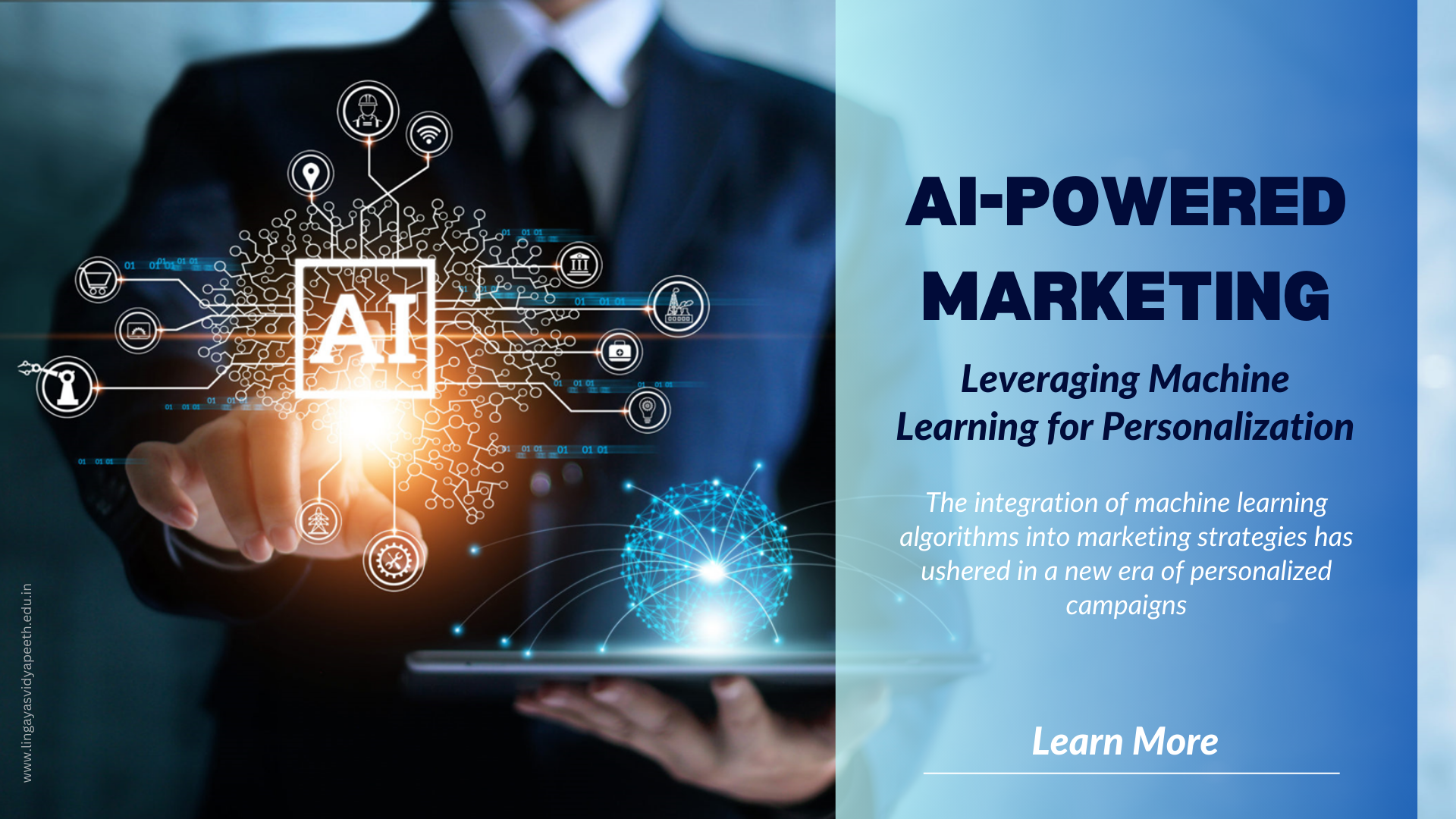
Across the vast expanse of the marketing landscape, artificial intelligence (AI) is catalyzing groundbreaking advancements that were previously only imaginable in the realms of science fiction. The integration of AI technologies is reshaping traditional marketing strategies, revolutionizing customer insights, personalizing user experiences, and optimizing campaign performance to unprecedented levels. This AI-driven evolution is propelling businesses to new heights of innovation and competitiveness in the digital age.
Content Creation and Curation
AI is creating and curating content at an unprecedented scale and pace. From simple blog posts to complex ad copy, AI is becoming a significant contributor to content marketing efforts.
Enhancing Social Media Strategies
AI technologies are revolutionizing social media marketing by analyzing vast amounts of data to identify trends, gauge consumer sentiment, and personalize content for individual users. This level of insight allows for the optimization of social media strategies, ensuring that content resonates with its intended audience and drives engagement. Through predictive analytics, AI can also forecast the potential success of social media campaigns and suggest adjustments to maximize effectiveness. Furthermore, AI-powered tools enable brands to monitor their social media presence in real-time, responding promptly to customer inquiries and feedback, thus improving the customer relationship and brand loyalty. This dynamic and responsive approach to social media marketing underscores the pivotal role AI plays in not just shaping, but also predicting consumer behavior and preferences.
Ad Targeting and Optimization
Programmatic advertising, driven by advanced artificial intelligence technologies, revolutionizes the advertising landscape. By leveraging AI capabilities, advertisers can precisely target their audiences, ensuring that ads are delivered to the right individuals at the right time. This precision not only optimizes ad spending but also boosts conversion rates, maximizing the impact of marketing efforts.
Email Marketing
Automated email campaigns have evolved to become increasingly personalized and are strategically timed for optimal engagement, all thanks to the remarkable capabilities of artificial intelligence. By leveraging AI’s capacity to analyze and anticipate customer behavior patterns, businesses can now tailor their email outreach with precision, enhancing customer interactions and driving improved results.
Voice Search Optimization
With the increasing prevalence of smart speakers and voice-activated devices, voice search optimization has become a critical area of focus for marketers. AI is instrumental in this field, helping brands to fine-tune their content for voice search queries, which tend to be more conversational and natural in tone compared to typed searches. This shift necessitates adjustments in keyword strategy, content creation, and SEO practices to align with the ways in which people are increasingly turning to devices like smart speakers for information. By leveraging AI to understand and optimize for voice search behavior, companies can position themselves effectively in this rapidly growing space, ensuring visibility and engagement from users who prefer voice-based interactions. This trend underscores the evolving nature of search and presents a unique opportunity for marketers to connect with audiences through this intimate and rapidly expanding channel.
AI technology plays a crucial role in enabling sentiment analysis, providing businesses with valuable insights into how customers perceive and feel about their brand. Moreover, AI can effectively pinpoint and recommend the most suitable influencers for successful collaborations, enhancing brand reach and engagement.
Customer Service
Artificial intelligence is revolutionizing customer service by leveraging advanced technologies such as chatbots and virtual assistants. These AI-powered tools are capable of efficiently managing a wide range of inquiries and resolving issues with exceptional accuracy and speed, thus enhancing the overall customer experience significantly.
The Challenges and Considerations of AI Powered Marketing
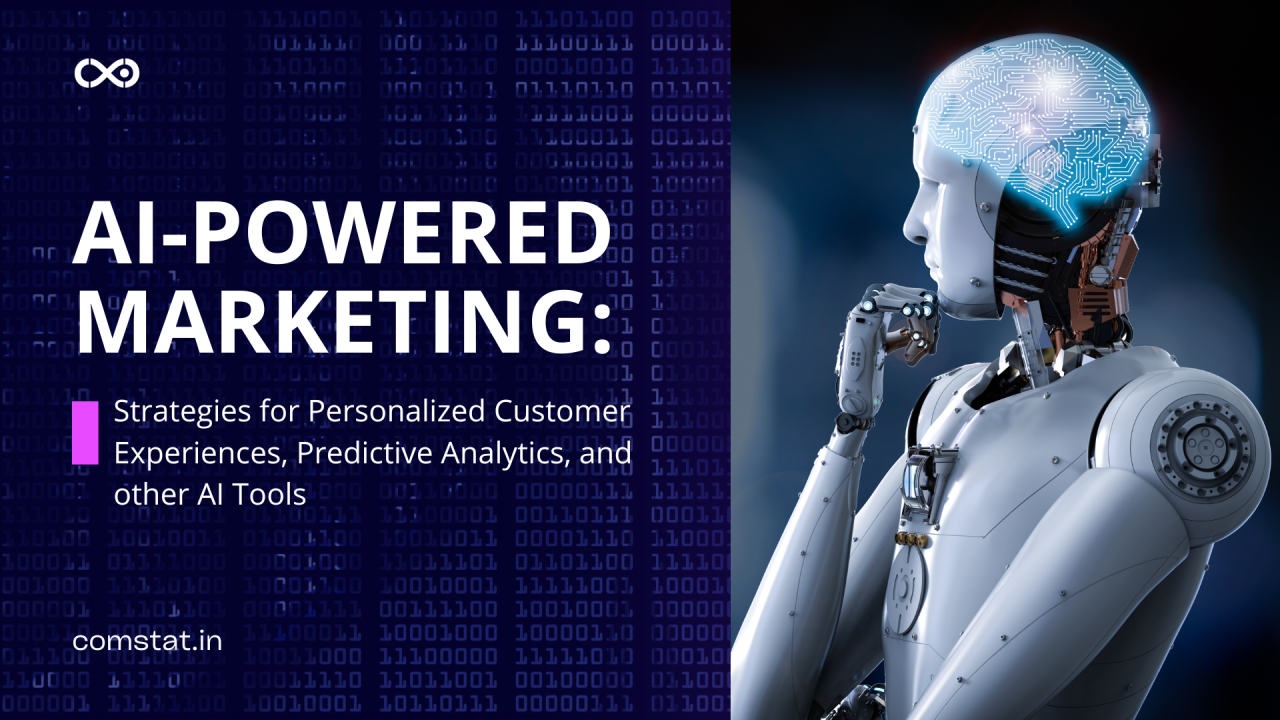
Alongside its many benefits, the integration of AI into marketing presents unique challenges.
Data Privacy and Security
The more AI knows about your customers, the more attractive your data becomes to malicious entities. Protecting this treasure trove of data is paramount.
Ethical Data Collection and Usage
Marketers need to maintain a high level of vigilance when it comes to the collection and utilization of data. Even seemingly harmless practices could potentially cross ethical boundaries or invade individuals’ privacy. It is crucial for marketers to constantly evaluate their data collection methods to ensure they are not engaging in any intrusive or unethical practices that could damage their reputation or relationships with customers.
Compliance with Regulations
Mandates such as the General Data Protection Regulation (GDPR) stipulate that businesses must handle customer data with the highest level of care and transparency. Compliance with these regulations is not merely a choice but a crucial responsibility that businesses must uphold. When it comes to integrating artificial intelligence (AI) technologies, it is imperative to ensure that AI systems operate within the boundaries set by these regulations to safeguard customer data and privacy effectively. Failure to do so can result in severe consequences, both in terms of legal repercussions and damage to a company’s reputation. Thus, a proactive approach to regulating AI in alignment with data protection laws is paramount for businesses aiming to maintain trust and integrity in their operations.
Algorithmic Bias
When artificial intelligence is trained on biased data, the results it produces will also reflect those biases. Therefore, it is of utmost importance to conduct regular audits of AI systems to guarantee fairness and equity in their outcomes. This practice not only helps in identifying and rectifying bias but also contributes to building trust and reliability in AI technologies.
Integrating with Existing Systems
For numerous businesses looking to stay ahead in the competitive market landscape, the integration of Artificial Intelligence (AI) into their established marketing technology stack comes across as a multifaceted and frequently intimidating endeavor that requires careful planning and strategic implementation.
Change Management and Staff Training
Embracing AI-powered marketing requires a substantial cultural shift within the organization. This shift encompasses the adoption of new technologies and the cultivation of a mindset that prioritizes data-driven decision-making and innovation. Implementing thorough staff training programs guarantees that all team members possess the essential skills to effectively utilize AI tools, thereby nurturing a collaborative and forward-thinking environment geared towards shared objectives.
The Future of AI Powered Marketing

The future landscape of AI in marketing appears promising, as numerous cutting-edge technologies continue to emerge, unlocking a myriad of innovative possibilities and reshaping the way businesses engage with consumers and analyze market trends.
Emerging Trends and Technologies
Voice search optimization will become increasingly important, while augmented reality and virtual reality will create entirely new marketing frontiers.
Potential Impact on Marketing Roles
AI’s rise won’t eliminate human roles in marketing, but it will shift them. Creativity, empathy, and strategic thinking will become even more valuable as AI takes on the more mundane aspects of marketing.
Shifting Skill Requirements
Marketers will need to develop a working knowledge of AI tools and concepts, or at the very least, be comfortable collaborating with those who do.
Collaboration Between Humans and AI
Ultimately, the most successful marketers will be those who can effectively collaborate with AI systems, leveraging their strengths while applying their own unique human touch.
Conclusion
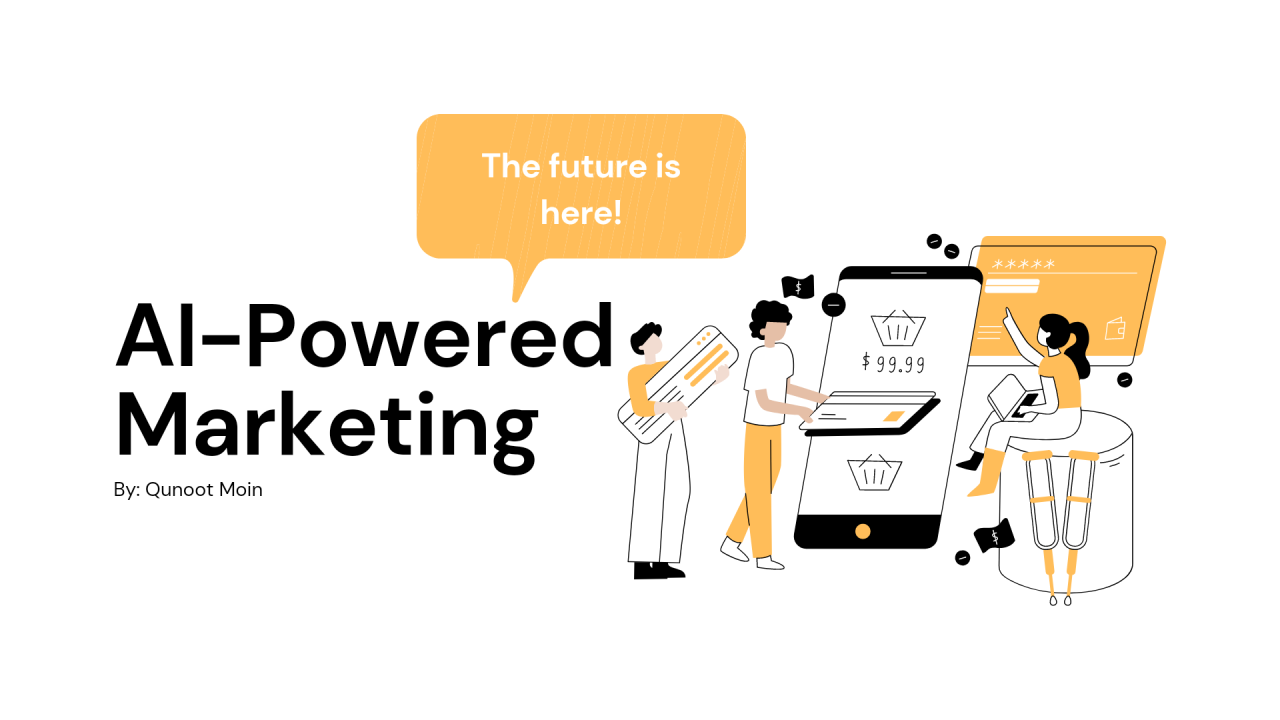
AI powered marketing is more than a passing trend – it’s a fundamental shift in how businesses can and will connect with their audiences in the digital age. By understanding the benefits, applications, and challenges of AI in marketing, companies can begin to formulate strategies that leverage this powerful technology to its fullest potential. The age of AI powered marketing is here, and it’s up to forward-thinking businesses to seize the opportunity and stay ahead of the curve.


